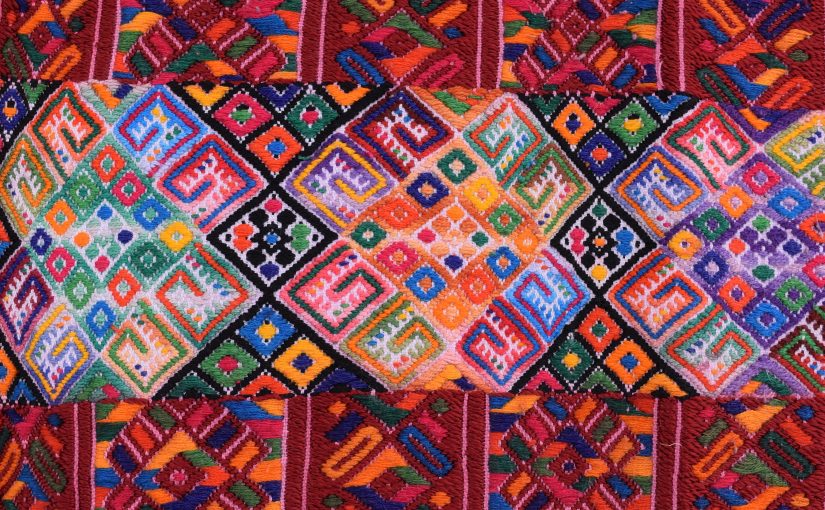In this lesson, you will learn about nominal possession in K’iche’. It is a bit more intricate than English or Spanish as K’iche’ has a very rich word morphology. You will have plenty of examples and drills!
In the following videos, students practice the possessive markers with tat Wel. Do you notice a difference between the two?
Possession
In K’iche’ nominal possession markers are prefixed on the possessed person/object. Different sets of prefixes are used with consonant-initial nouns and with vowel-initial nouns. The exception is formal address, in which the post-nominal particles la (sing.) or alaq (plural) are used instead of prefixes. See the examples in the table below:
| Before a consonant |
rajil “money” | Before a vowel | achi’l “friend” |
| nu-rajil | my money | w-achi’il | my friend |
| a-rajil | your money | aw-achi’il | your friend |
| rajil la | your money (formal) | achi’l la | your friend (formal) |
| u-rajil | his/her money | r-achi’il | his/her friend |
| qa-rajil | our money | q-achi’il | our friend |
| i-rajil | your money (pl. informal) | iw-achi’il | your friend (pl. informal) |
| rajil alaq | your money (pl. formal) | achi’l alaq | your friend (pl. formal) |
| ki-rajil
|
their money | k-achi’il
|
their friend |
Inherent possession (-Vl)
A certain class of K’iche’ nouns may take an additional /-Vl/ suffix. This is known as inherent possession and marks a part-whole relationship between possessor and possessed object/person. For example, there is a semantic difference between nub’aq and nub’aqil. The former references bones that are not part of the possessor’s body, chicken bones used to make soup, for example. The latter, in contrast, means “my body” which references the possessor’s own body. Some nouns take only inherent possession markers (wife, husband), others may take both (bone, house). The large majority of nouns do not take inherent possession markers, however. A few nouns take irregular possessed forms such as house (ja when not possessed, -ochoch when possessed).
| Preconsonantal | b’aq ‘bone’ | Prevocalic | ixoq ‘woman’ | –o’ch | ‘house’ |
| nu-b’aq-il | my body | w-ixoq-il | my wife | w-o’ch | my house |
| a-b’aq-il | your body | aw-ixoq-il | your wife | aw-o’ch | your house |
| b’aq-il la | your body (formal) | ixoq-il la | your wife (formal) | o’ch la | your house (formal) |
| u-b’aq-il | his/her/its body | r-ixoq-il | his/her wife | r-o’ch | his/her house |
| qa-b’aqi-il | our body | q-ixoq-il | our wife | q-o’ch | our house |
| i-b’aq-il | your body (pl.) | iw-ixoq-il | your wife (pl.) | iw-o’ch | your house (pl.) |
| b’aq-il alaq | your body (pl. formal) | ixoq-il alaq | your wife (pl. formal) | o’ch alaq | your house (pl. formal) |
| ki-b’aq-il
|
their body | k-ixoq-il
|
their wife | ko’ch
|
their house |
Other examples:
| wuj | book |
| che’ | tree |
| ja | house (unpossessed) |
| -o’ch | house (possessed) |
| -ij | back of… (possessed) |
| achi’il | friend |
| -wach | face (possessed |
| -al | child (of woman) |
| kaq | red |
| ch’ich’ | metal; car |
| kik’ | blood |
| xa’r | cup |
| wakax | cow |
| q’oq’ | chilacayote |
| oj | avocado |
| ulew | tierra |
| b’aq | bone |
| rajil | money |
| tijonik | lesson |
| tz’ib’ab’al | pencil, pen |
Mark all of the following nouns using the possessive markers for all persons:
ch’ich’
kik’
xa’r
wakax
q’oq’
oj
ulew
b’aq
wuj
tijonik
tz’ib’ab’al

